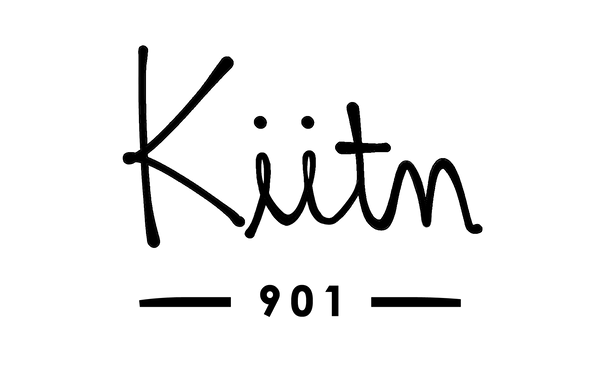Shiseido Company Limited, a prominent Japanese cosmetics and personal care giant, has announced that it will be partially terminating its global license agreement with Italian luxury fashion label Dolce & Gabbana (D&G). The agreement, which has been in place since October 2016, will cease to be effective from December 31st, 2021, for all product categories, activities, and markets except France.
Under the agreement, Shiseido had been responsible for developing, producing, marketing, and distributing D&G's makeup, skincare, and perfume products, utilizing significant resources. However, the deal has not yielded the desired results, particularly in the booming beauty and grooming market in mainland China. The D&G brand has also been marred by controversy... including a widely criticized advertisement in 2018 that sparked public outcry and a boycott of its products.
The COVID-19 pandemic has further exacerbated the situation, grounding people at home and shuttering beauty retailers for an extended period. As a result, demand for luxury beauty and grooming products has drastically decreased. In a GlobalData 2020 COVID-19 survey, 12% of Chinese respondents reported that they had stopped buying beauty and grooming products due to budget constraints, while 53% opted for products in the low-to-medium price range.
Despite the challenges, Beauté Prestige International S. A. S., Shiseido's Paris-based subsidiary... and the D&G license will continue to operate in the French market. The subsidiary will also maintain worldwide manufacturing and distribution of D&G products until January 1st, 2022. Shiseido's decision to partially terminate the agreement marks a significant departure from its previous strategy, "highlighting the company's efforts to adapt to the rapidly changing beauty and grooming landscape." As the industry continues to evolve, it ___ to be seen how Shiseido will navigate this new landscape and maintain its position as a leading player in the global cosmetics market.
In a statement, Shiseido emphasized its commitment to continues to deliver high-quality products and services to its customers, "while also exploring new opportunities to drive growth and innovation." As the company moves forward, it is clear that adaptability and creativity will be key to success in an increasingly competitive and rapidly changing industry.
Luxury Beauty Industry Challenges
The luxury beauty industry, synonymous with opulence and sophistication, has recently been beset by a myriad of challenges that threaten to undermine its very essence. The onset of the COVID-19 pandemic has precipitated a catastrophic decline in demand for high-end beauty products, as consumers, forced to adopt frugal habits, have turned to more affordable alternatives.
This shift in consumer behavior has left luxury beauty brands reeling, with their revenues plummeting precipitously. The industry has been ravaged by controversy and criticism... as certain brands have been accused of perpetuating societal norms that prioritize physical appearance over inner beauty. The recent backlash against Dolce & Gabbana's culturally insensitive advertising campaigns has served as a stark reminder of the need for greater empathy and sensitivity in the creative process.
In an era where authenticity and diversity are increasingly valued, luxury beauty brands must navigate these challenges with the utmost care to avoid reputational damage. The rise of e-commerce has also presented a daunting challenge for luxury beauty brands, who must now contend with the inexorable tide of online shopping.
As consumers increasingly opt for the convenience and discretion of online purchasing, traditional brick-and-mortar stores risk becoming relics of a bygone era. In response... luxury beauty brands must adapt by investing in digital marketing and e-commerce platforms that showcase their products in a compelling and immersive manner.
The industry has faced criticism for its lack of transparency and sustainability. Consumers are increasingly demanding that companies prioritize environmental responsibility and social justice, and luxury beauty brands must respond by implementing more environmentally friendly packaging and sourcing practices. The trend toward clean beauty and sustainability shows no signs of abating, and brands that fail to adapt risk being left behind.
In light of these challenges, luxury beauty brands must adopt a more flexible and proactive approach to marketing and innovation. By fostering a culture of creativity and experimentation, they can develop new products and business models that resonate with changing consumer preferences. This may involve partnering with digital influencers or investing in emerging technologies such as augmented reality and biotechnology.
Ultimately, the luxury beauty industry must evolve in response to these challenges if it is to maintain its position as a leader in the global cosmetics market. By embracing change, innovation, "and social responsibility," "luxury beauty brands can not only survive but thrive," providing consumers with products that not only satisfy their aesthetic desires but also promote a sense of well-being and self-care.
Japanese cosmetics and personal care giant, Shiseido Company Limited, announced it is partially terminating its global license agreement with Italian luxury fashion label Dolce & Gabbana (D&G). The license agreement would cease with effect from December 31st, 2021 for all product categories, activities and markets, except France.___ ___
Under the agreement, Shiseido had been developing, producing, marketing, and distributing D&G's make-up, skincare, and perfume products since October 2016, utilising considerable resources. However, the D&G brand failed to make a mark in the booming beauty and grooming market in mainland China, and the cost structure of the agreement undercut Shiseido's toplines. To add to its woes, D&G got mired in controversy in 2018, as its #DGLovesChina advertisement was deemed derogatory to the Chinese people, thereby sparking public outcry and boycott of its products.



